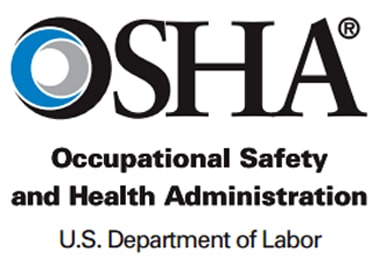Prevent It


OSHA MSDs - Now What? How Onsite PT Can Help
In today's video, Brian Boyle, PT/DPT, talks about OSHA prevention and how it differs from treatment or an OSHA recordable injury.
Impact of Musculoskeletal Disorders (MSDs) in the Workplace
Work-related MSDs are among the most frequently reported causes of lost or restricted work time. According to the Bureau of Labor Statistics (BLS), MSD cases account for 33% of all worker injury and illness cases. The Occupational Safety and Health Administration considers an injury or illness to be work-related if an event or exposure in the work environment either caused or contributed to the resulting condition or significantly aggravated a pre-existing condition.
Prevention
OSHA defines MSDs as injuries or illnesses that affect the muscles, nerves, blood vessels, ligaments, and tendons. Workers in many different industries and occupations are exposed to risk factors at work, such as lifting heavy items, bending, reaching overhead, pushing and pulling heavy loads, working in awkward body postures, and performing the same or similar tasks repetitively. Exposure to these known risk factors for MSDs increases a worker's risk of injury.
Work-related MSDs can be prevented. Ergonomics --- fitting a job to a person --- helps lessen muscle fatigue, increases productivity, and reduces the number and severity of work-related MSDs.
How does OSHA define a recordable injury or illness?
Medical treatment beyond first aid is a criterion that determines if a work-related injury or illness is OSHA recordable. Any work-related incident where the involved parties received medical treatment other than first aid is considered OSHA recordable.
Recordable cases include work-related injuries and illnesses that result in:
- Any work-related fatality.
- Any work-related injury or illness that results in loss of consciousness, days away from work, restricted work, or transfer to another job.
- Any work-related injury or illness requiring medical treatment beyond first aid.
- Any work-related diagnosed case of cancer, chronic irreversible diseases, fractured or cracked bones or teeth, and punctured eardrums.
- There are also special recording criteria for work-related cases involving: needlesticks and sharps injuries, medical removal, hearing loss, and tuberculosis.
Learn how an international manufacturer saved millions of dollars with onsite PT clinics.
Here are additional resources you may be interested in:
- Why Onsite Physical Therapy Services are a Smart Choice for Your Wellness Program
- Injury Prevention Dials into Employee Experience
- Why Managed Onsite Physical Therapy Clinics Deliver Better Results
- How Onsite Physical Therapists Can Reduce Occupational Stress
- 10 Benefits of Onsite Physical Therapy Clinics
- How to Boost Employee Productivity and Retention
- Why Does it take 170 Steps to Onboard a Successful Onsite PT Program?
Select a topic
- View all topics
- WorkWell
- Safety Culture
- Onsite PT Clinics
- Ergonomics
- Injury/Illness Prevention
- Employee Wellness
- MSK
- POET
- Industry News
- Safety
- Managed Services
- Manufacturing
- FJD
- Functional Job Descriptions
- Onsite PT
- Post Offer Employment Training
- Provider Network
- Blog
- Events
- Featured
- OSHA
- Work Readiness
- Company News
- Job Coaching
- MSK Strategy
- Musculoskeletal
- PT Solutions Employee
- Presenteeism
- Push/Pull
- Recruitment
- Training
- Trust
- Worksite Rounds
Subscribe to Our Blog
Practical tips focused on workplace injury prevention.
Featured Posts
postsTags [BlogPost 199930206624 Why Fit Matters: Preventing Injuries Before Day One, BlogPost 196317046114 The Fork in the Road: Reacting vs. Preventing Workplace Injuries]
.png)

